Top 10 Best ️Solar Energy Companies in the World | solar panels
Top 10 Best ️Solar Energy Companies in the World
1/ SunPower
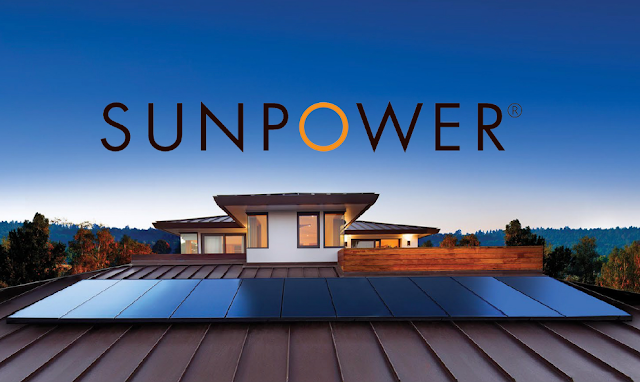 |
| SunPower |
SunPower Corporation is a public company headquartered in San Jose, California. It sells, installs, and finances solar energy products, such as panels, batteries, mounting hardware, and monitoring software. The company was founded in 1985 by Stanford electrical engineering professor Richard Swanson. Cypress Semiconductor acquired a majority stake in the company in 2002. SunPower grew rapidly and went public in 2005. In 2007 SunPower acquired PowerLight, doubling the size of the company. Total acquired a majority stake in SunPower for $1.37 billion in 2011. In 2019, SunPower announced that it was divesting its manufacturing operations to a company called Maxeon Solar Technologies, Ltd.
Products and services
SunPower designs and markets solar energy products and services. For example, it sells, installs, and finances panels, batteries, media, and software. Its products are known to be more expensive but produce energy more efficiently than competing products. SunPower is often used where panel space is limited, such as on rooftops.
Ordinarily, the electrical contacts are at the front of a solar panel, facing the sun. The front of SunPower panels channels light to the electrical contacts on the back of the panel, reducing the amount of sunlight reflected rather than transformed into energy. The company started renting solar panels in 2011 and started a pilot project for battery products around 2014.
Most of SunPower's sales are in the United States. Early in its history, SunPower built several of the largest solar power plants in the United States. In 2008, SunPower began building large-scale solar farms for utility companies PG&E and OptiSolar in San Luis Obispo and Hayward respectively. He also built other large facilities, such as the Kennedy Space Center. SunPower also built the Bavaria Solarpark in Germany in 2004. The plant spans 62 acres across three sites. At the time, it was the largest solar power plant in the world.
2/ Zenernet
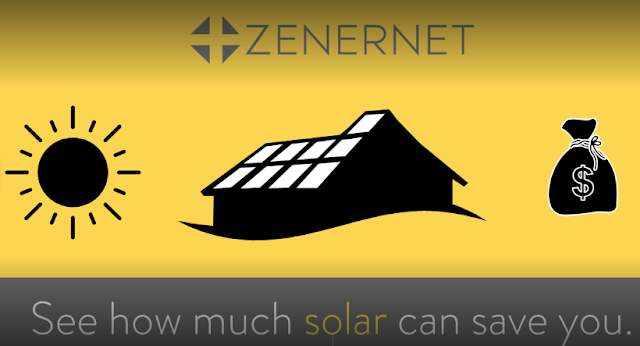 |
| Zenernet |
Zenernet is a leading solar supplier specializing in solar home installation. Zenernet is based in Kansas City and installs solar power coast to coast. Zenernet is focused on providing the best customer experience in solar energy, designing systems that look great and perform even better, using best-in-class hardware backed by rock-solid warranties, and offering a set of innovative technologies to help customers get the most out of their solar investment. If you want to switch to solar power and enjoy the tremendous benefits of energy independence, visit us on our website to request a no-pressure consultation. We are on a mission to accelerate energy independence for everyone, one satisfied customer at a time.
3/ Tesla Energy
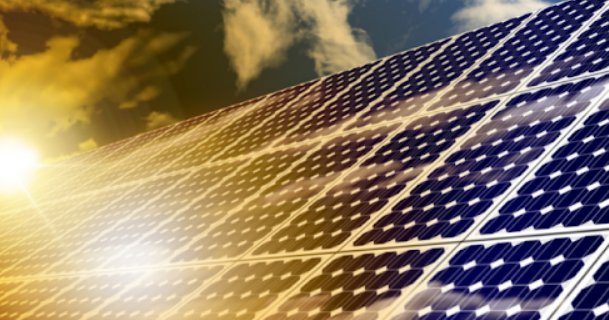 |
| Tesla Energy |
Tesla Energy is the clean energy subsidiary of Tesla, Inc., headquartered in Fremont, California, which develops, manufactures, sells, and installs photovoltaic solar power generation systems, energy storage products batteries, and other related products and services for residential, commercial, and industrial customers.
The subsidiary was founded on April 30, 2015, when Tesla CEO Elon Musk announced that the company would apply battery technology it developed for electric cars to a home energy storage system called Powerwall. In November 2016, Tesla acquired SolarCity, in a US$2.6 billion deal, and added solar power generation to Tesla Energy's business. The deal would be controversial because, at the time of the acquisition, SolarCity was facing liquidity issues.
The company's current power generation products include solar panels (made by other companies for Tesla), the Tesla Solar Roof (a solar shingle system), and the Tesla Solar Inverter. In addition to the Powerwall, the company also manufactures large-scale energy storage systems called Powerpack and Megapack. Tesla has developed a software ecosystem to support its hardware products.
In 2020, the company deployed solar power systems capable of generating 205 megawatts (MW) (the third largest residential solar installation in the United States) and deployed 3-gigawatt hours (GWh) of energy storage products per drum.
Products and services
Tesla Energy develops, builds, installs, and sells solar power generation systems, battery energy storage products, and other related products and services to residential, commercial, and industrial customers.
Solar power generation
1/ Solar panels
Tesla Energy sells and installs traditional solar panels on existing rooftops, what the company calls "retrofit solar systems." Unlike the company's other products, Tesla Energy does not build its own solar panels. As of 2021, the company uses panels built by Hanwha Q Cells. Previously, Tesla used panels from Panasonic as part of a larger corporate partnership. Panasonic left the solar business in January 2021.
The company is primarily focused on residential customers who purchase the system with cash or finance. Additionally, Tesla Energy also offers systems to commercial customers in California.
Tesla Energy does not have a rental program like SolarCity, but between August 2019 and May 2021, it offered "subscription" systems to customers in Arizona, California, Connecticut, Massachusetts, New Jersey, and New Mexico, as part of a plan to boost residential solar power. deployments. Compared to a lease, customers do not need to sign a long-term agreement and can ask Tesla to deactivate the system at any time without penalty; however, Tesla charges a flat fee to remove the system.
As of 2021, Tesla Energy offers four standard solar sizes: a small system with 10 panels rated at 4.25 kW, a medium system with 20 panels rated at 8.5 kW, a large system with 30 panels rated at 12.75 kW, and a very large system with 40 panels rated at 17 kW. The company says that by offering standardized system sizes, it can reduce prices by streamlining designs, approvals, and logistics. The standard system sizes also correspond to the capacities of the Tesla solar inverter.
Tesla uses proprietary mounting hardware on the roofs that eliminates the need for mounting rails and uses skirts that hide the hardware and make the panels appear flush with the roof. SolarCity acquired the mounting technology when it purchased Zep Solar in 2013. The "trackless" system allows installers to install rooftop solar panels faster than other installation approaches. Traditionally, installing solar panels requires workers to first fit roofs with mounting rails and then attach the solar panels to these rails.
2/ Tesla Solar Roof
The makers of Tesla Energy install and sell a solar shingle product called Tesla Solar Roof. Solar shingles are small solar panel tiles that can make up an entire roof surface. The company claims that a solar roof costs less than installing a new roof with solar panels. The product was first unveiled in August 2016, but Tesla couldn't start mass-producing the solar roof until March 2020.
3/ Tesla solar inverter
In January 2021, the company launched its own solar inverter. The company says the Tesla solar inverter builds on technology it developed for Powerwall inverters and electric cars. Like Tesla's Powerwall and cars, the solar inverter is capable of receiving over-the-air updates from built-in cellular connectivity. The product was noted for using older string inverter technology (many systems now use microinverters), but it has the potential to further drive down the cost of Tesla's solar systems. EnergySage, a solar buyer's guide website, gave the Tesla Solar Inverter a rating of "very good," generally praising the device but noting that its 97.5% efficiency and warranty of 12.5 years lag behind industry leaders.
The inverter is available in two sizes: 3.8 kW and 7.6 kW AC output power. The 3.8 kW model is sized to meet the needs of Tesla's smallest solar panel system size and has two peak power point trackers. The 7.6 kW model is sized to meet the needs of Tesla's mid-size solar panel system and has four peak power point trackers. Installations using Tesla's large system size use one 3.8 kW inverter and one 7.6 kW inverter, while Tesla's extra-large systems use two 7.6 kW inverters.
Tesla's Powerwall+, launched in April 2021, includes an integrated Tesla solar inverter.
Battery energy storage
1/ Tesla Power Wall
The Tesla Powerwall is a rechargeable lithium-ion battery energy storage device intended for use in home energy storage. The current generation of Powerwall 2 is capable of storing 13.5 kilowatt-hours for solar self-consumption, time-of-use load shifting, and backup power.
A Powerwall system can consist of up to 10 Powerwalls, including a combination of Powerwall+ and traditional Powerwalls. In areas where building codes permit, up to three of these devices can be "stacked" back and forth to take up less space.
The Powerwall+ combines the functions of a Powerwall 2, the Tesla solar inverter, and a backup gateway (a system controller and a transfer switch). The combination simplifies installation and allows for even greater power during periods of full sun.
Tesla no longer sells Powerwalls directly to consumers. They must be purchased with solar panels or solar roof systems from Tesla or from a certified installer. Additionally, beginning in late May 2021, Tesla Energy requires all new solar panels and solar rooftop customers to purchase at least one Powerwall with their system.
2/ Tesla Powerpack and Megapack
The Tesla Powerpack and Tesla Megapack are large-scale rechargeable lithium-ion battery energy storage devices for use by a business or utility company.
The Powerpack is capable of storing 232-kilowatt hours and is intended for enterprise use or for small utility company projects and can be used for peak shaving, load shifting, emergency power, demand response, microgrids, renewable energy integration, frequency regulation, and voltage control.
The Megapack is capable of storing up to 3-megawatt hours and is built as a containerized product for use by utility companies, typically as part of a battery storage power plant, and can be used for smoothing from renewable energy supply, voltage support, capacity support, micro-grids, frequency regulation, and voltage control.
Tesla Energy Software
Tesla has developed a software ecosystem to support its energy hardware products. Autobidder, Powerhub, Opticaster, Microgrid Controller, and Virtual Machine Mode are the products offered by Tesla.
4/ SunLux
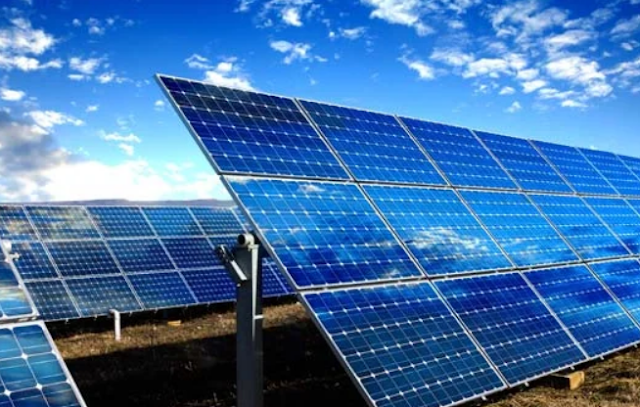 |
| SunLux |
SunLux is a solar panel installer that helps homeowners in California and Texas harness renewable energy and saves money on their electric bills. In this review, the This Old House review team takes a look at financing and installing SunLux to help you decide if this company is the right solar power provider for your home.
SunLux Solar Power Services
SunLux specializes in the installation of residential panels and follows a rigorous process to quickly provide solar energy to its customers. The five-step process includes:
- Site Assessment—SunLux will send a project manager to your home for a site assessment, which will include roof measurements and roof shading inspection and provide the design team with the information needed for your system.
- Design and Engineering—A solar panel designer will create your custom solar package, specific to your home and your energy needs.
- Permits—SunLux will compile the necessary documents and collect the required permits from your municipality.
- Installation—Installation will begin as soon as the necessary permits have been obtained. The construction will be carried out by a certified SunLux team and you will have access to an on-site foreman in case of any problems or concerns.
- Inspection and Authorization to Operate (PTO) - After installation, SunLux will schedule an inspector from your municipality to review the installation to ensure it is up to code. Once the inspector has approved the system, the company will submit a PTO package to your local utility provider to begin operation.
5/ Elevation Solar
 |
| Elevation Solar |
Elevation Solar specializes in whole-home energy solutions. It acquired Curb Energy to add monitoring technology to systems in 2020. Solar batteries and electric vehicle charging stations are also available.
At press time, around 60% of Elevation customers we spoke to have recommended the company. Its overall satisfaction rating is 4 stars.
Elevation started with a common problem: high energy bills. Our founders, Jerry Coleman and Brian Bair, invested in real estate through two fast-growing companies, OfferPad and Invitation Homes, companies that purchased large numbers of single-family homes. As these businesses grew, their energy costs rose with them and they soon found themselves with very high energy bills, most often their biggest expense after the mortgage.
Brian and Jerry set out to find out what was driving up energy costs and excess consumption, and how they could make their homes more energy-efficient, and Elevation was born.
The company started with rooftop solar but quickly expanded to include energy efficiency when it discovered that to create an energy-efficient home, it needed to not only produce new energy and clean but also reduce the amount of energy consumed.
In 2020, Elevation acquired Curb Energy to add smart energy monitoring technology to its Whole Home solution. The unique combination of solar technology, energy efficiency, and energy monitoring now offers homeowners the most complete solution for smarter home energy.
More savings means more impact.
The biggest generator of carbon emissions is the fossil fuels used to generate electricity. At Elevation, we believe we all have a responsibility to use our electricity wisely. That's why we go beyond solar to create an elevated home.
A raised house not only produces new and clean energy, but it is also smarter: it reduces the overall energy needed. As a result, our elevated homes have a reduced environmental footprint through low carbon usage.
6/ Vivint Solar
 |
| Vivint Solar |
Vivint Solar, Inc. is an American solar energy company headquartered in Lehi, Utah. It is a residential solar provider that designs, installs, and maintains photovoltaic systems.
Vivint Solar operates in 23 US states (Arizona, California, Colorado, Connecticut, Florida, Hawaii, Illinois, Maryland, Massachusetts, Nevada, New Hampshire, New Jersey, New Mexico, New York, Pennsylvania, Rhode Island, South Carolina, Texas, Utah, Vermont, and Virginia). It has installed over 188,000 solar panel systems totaling over 1,290 megawatts of rooftop solar power as of March 2020. It uses fleet vehicles in traditional Vivint orange coloring.
Founded in 2011 as a subsidiary of Vivint, Vivint Solar went public in 2014. Vivint Solar was listed on the New York Stock Exchange under the ticker symbol VSLR, but since the purchase of Vivint by SUN RUN, its assets fall under the ticker symbol RUN.
The company is considered a green home technology company and is the fastest-growing solar energy company in the United States that uses the Power Purchase Agreement (PPA) model. This model includes reporting your generated energy to the local power company, i.e. PG&E, and then you pay the difference between generation and usage.
In 2016, Vivint Solar introduced a new CEO, David Bywater. In 2017, the company partnered with Mercedes-Benz Energy on home batteries; Vivint Smart Home to track power consumption to save electricity; and ChargePoint, which provides electric vehicle (EV) charging stations at home.
In 2017, Vivint Solar expanded its products beyond solar panels to energy storage, electric vehicle charging, and smart energy management. It announced partnerships with Mercedes-Benz Energy to offer home storage batteries, Vivint Smart Home to integrate energy usage tracking, and ChargePoint to charge electric vehicles (EVs) at home. As Mercedes-Benz was unable to meet some of Vivint Solar's requirements, LG Batteries became the new partner.
The company's fully integrated solar system allows customers to purchase a Vivint Solar rooftop solar system, a ChargePoint Home electric vehicle charger, an LG storage home battery, and Vivint Smart Home intelligent energy management.
7/ POWERHOME SOLAR
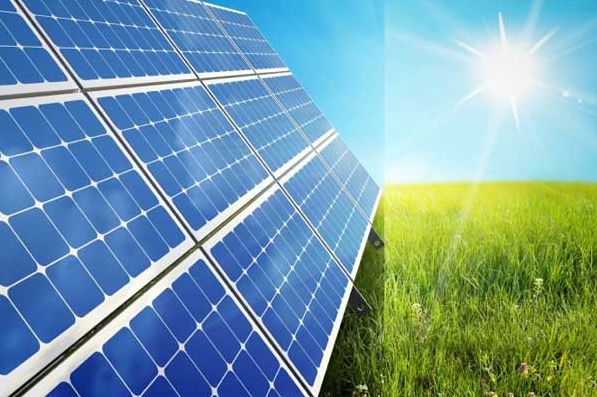 |
| POWERHOME SOLAR |
POWERHOME SOLAR is an American company based in Mooresville, North Carolina, specializing in solar energy and energy efficiency services. We were founded in 2014 and started serving our customers in 2015 when we had 15 employees. Since then, we have experienced explosive growth that has seen us do business in 15 states and employ over 2,000 people. We intend to build a solar energy movement across America.
At POWERHOME SOLAR, the mission is to help customers reduce their dependence on the electricity grid by enabling them to invest in a future powered by solar energy. As the major power companies continue to raise rates and dictate what a customer owes for electricity, we strongly believe in providing our customers with a more convenient option. We want our customers to potentially save money while helping us create a cleaner future for future generations.
8/ Momentum Solar
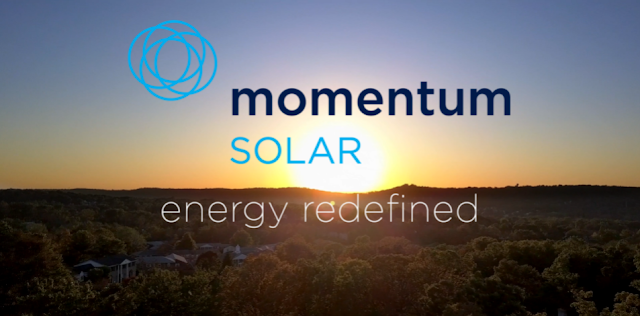 |
| Momentum Solar |
Momentum Solar is one of the leading residential solar contractors in the United States. Recognized by Inc. 500 as one of the fastest-growing private companies, Momentum Solar employs more than 2,000 people nationwide. We operate in New Jersey, New York, California, Florida, Texas, Connecticut, Pennsylvania, Arizona, Nevada, and Massachusetts. Momentum Solar is an owner-operated company committed to providing savings to customers while helping the environment by providing clean, affordable electricity.
9/ Solar Five
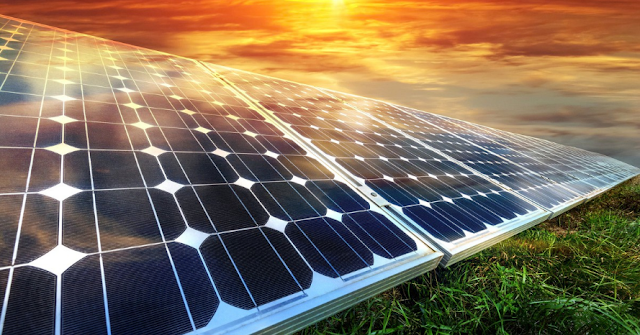 |
| Solar Five |
Solar Five, provides world-class energy solutions. It's time to take control of your energy bill, save money and contribute to a healthier environment. At the core of its business is a dedication to best-in-class offerings from initial consultation, system design, installation, maintenance, and management of your system.
10/ Dividend Solar
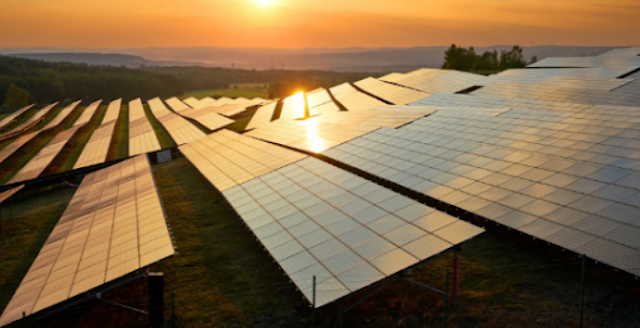 |
| Dividend Solar |
Dividend Solar is a solar energy finance company that offers a variety of loan options for people interested in investing in renewable energy and solar energy systems. Most customers get solar finance loans between $15,000 and $50,000.
Dividend Solar has designed its loan process to be as easy as possible. Customers get instant credit decisions, can apply and be approved for loans online, and can make automated payments. Dividend Solar loans come with fixed rates, tax benefits, and no prepayment penalties.
The company partners with more than 700 solar installation companies to help customers achieve high-quality solar power systems. However, Dividend Solar does not handle the installation directly - a third-party company installs the system and you must contact that company to complete the project.
Dividend Solar offers three solar loans to choose from in addition to commercial PACE (property assessed as clean energy) loans.
- EmpowerLoan and EmpowerPlus loan options allow consumers to purchase solar panels without paying upfront. These loans have flexible financing terms and fixed payments.
- Dividend's Solar + Storage loan option is useful for homeowners looking to finance solar panels and battery storage equipment. Homeowners can finance both AC and DC systems.
- A PACE loan allows business owners to finance solar panels and other energy-efficient improvements on private commercial properties.







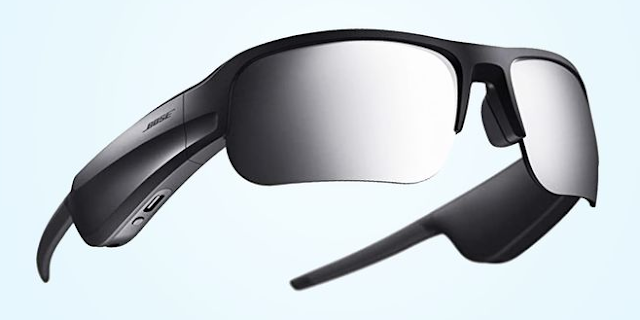



Comments
Post a Comment